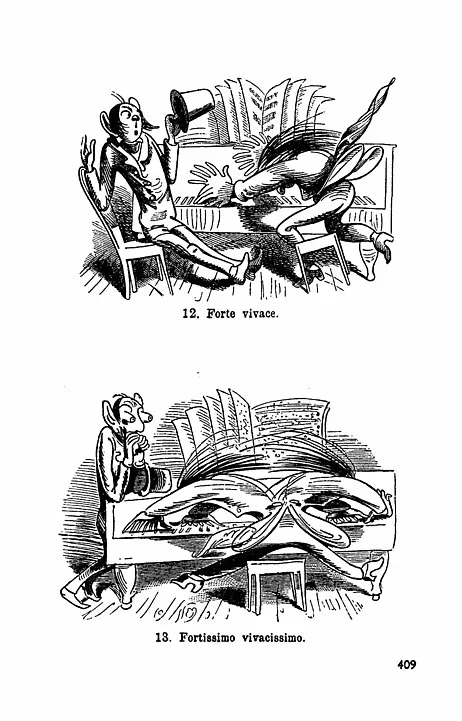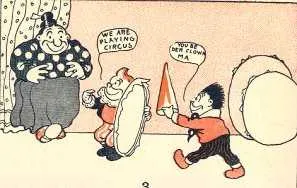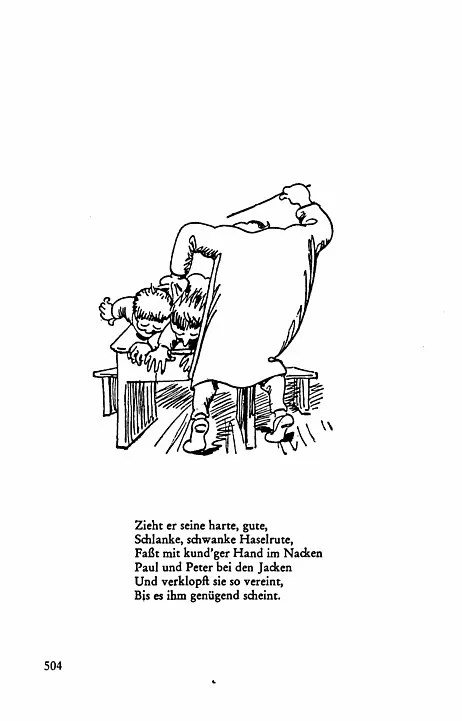
Please recall exactly what you have thought this morning. Word for word.
......................................................
............................................
................................
......................
..................
............
.......
.....
...
..
.
It's impossible, right?
When I say I remember something, what exactly do I remember?
Is it an experience in which only I and I alone was present? Then it must be a powerful experience. Something that reminds me that I experienced something in being alone.
Most of the time I spend alone, however, does not bring me any concrete memory, unless a certain fixed thought or action was connected with it. Nevertheless, I cannot remember exactly what happened when I was having a work done. Or painted a picture. Or cooked a meal. Or thought something.
Thinking at all does not cause memory, because how can I remember thoughts?
I can't remember thoughts because I could not think them specifically in exactly the right order. I can remember a feeling I had in connection with my thoughts. But not more.
Rather I remember a feeling I had when I thought about an episode or an experience. In principle I have feelings in connection with other than me (people, animals, the world), which allow me to have a feeling about myself. Without putting a feeling in relation to something else, I can't have a thought about it. "Thinking" is interestingly expressed in German, because it puts the word " after" before "thinking". So: After-thinking.
There is also pre-thinking, but nobody says that when they want to express that they have thought about something in silence. We Germans always say: "I after-thought", never "I have thought", when we want to talk about a certain thing with another person and refer to something.
But let us take the words at their word.
To remind myself of something, in the singular means to re-question my mind. RE-MIND.
That's the way I am with me. Here, when I say remembering, I don't speak of a solitary matter, but a collective one. RE-MEMBER.
The word "member" expresses one more participant ore more participants, because without participants, no rememb(er)rance.
We humans attach great importance to membering, in deed.
We are tracking back our own and our collective stories. Through, for example, family narratives or through collective narratives, called "history". Tracking back, though, can't be precise. What we do by back tracking is to come to agreement into a todays = present context of a narrative.
For example, if I take an episode from my family history, an event that happened only a few days ago, and I thematize this event in the circle of my family members and emphasize a certain aspect that is also understood as significant by the others, then we create memory. In the course of time, when we are constantly exchanging information about the particular aspects of an event, it can even happen that the original event recedes into the background to such an extent that only the highlighted aspect is of importance. This emphasis can then be distorted in the sense that it becomes more heroic than it actually was. For example, by highlighting the deed of a family member in a heroic light, but at that time it merely showed a certain courage, but by no means life-threatening. But by stylizing it together into a life-threatening situation, we construct a memory that is supposed to be significant, even though it may not have had this strong meaning.

A former teacher may appear in the same meaning to his students, who are now adults.
You have remembered this terrible teacher and his horrible teaching methods over and over again until this teacher appears as a paragon of despotism. The meaning that the students try to give themselves in this context is that they look back on their school days in either a negative or a positive way. Someone who gives negative meaning would perhaps say that the teacher is responsible for his or her low self-esteem. Another would attribute positive meaning and say that he has maintained his dignity despite the horrible teacher. The teacher may not have been so despotic in reality, but the memory that is created together is of constructive importance for those who remember.
It is obvious that this is a common act of remembering.
When I remind myself of my school days, how can I call it "my own memory"? It's created through others as well as it's created (constructed) by me and others. It's a collective act. "We are tracking back our own and our collective stories": Can you see now that the "own" is entangled with the "collective"? Why should you anyway be in dialogue with someone and use a certain explanation for your experiences or decisions to make?
I suppose that people in solitary confinement have to build such constructions, invent stories and share them with others in order not to go crazy. But since there are no others available in solitary confinement, one has to construct the present reality as one needs it. You invent companions in your imagination.

However, you cannot endlessly create memory from within yourself;
in fact, if you were condemned to endless loneliness, you would appear to others to be completely crazy. One could say, for example, that a schizophrenic who has dissociated himself from his fellow world due to having experienced complete isolation, is doing something very meaningful.
A family member who wants to remember the episode from that time differently could say to his relatives: "This is all a lie! In fact, it happened quite differently. It wasn't a heroic act, just an ordinary act!" But he will not be able to teach this as a lie to the family members who have constructed this memory over years of thematizing. They will resist it flat out. Understandable, no?
The one who sees himself as an outsider of this family history will despair if he wants to hold on to the assertion of a lie and stiffly claims that it was different. Therefore, it is pointless to search for the details or to argue about the so called "truth".
It would be important to ask the "outsider" what he thinks, why do the others want to hold on to this story? What could be important to them about the version of their story? For example, if the younger brother was rescued from drowning by his father in a lake and says, "Father saved my life," but in reality he was never in real danger, knows this (for example, because as a little boy he felt ground under his feet), but ignores this knowledge, then he has a good reason for ignoring it. He will want to keep a good memory, which for him means that his father stood up for him and even saved his life, and had endangered himself for him and him alone.
Who are we to say he is a liar?

The deeper meaning of wanting to keep a certain memory is to have a view on oneself that is not dominated only by difficult or bad events. It's the need to create something good out of something perceived - remembered - mainly bad (a difficult childhood/choleric in the parent). Especially when you were traumatized as a kid you will suffer, if no one from the family members provides for a better story and thus creates some good meaning for the adult who thinks he was traumatized and that is it! Down with the traumatizing bastards!
Now, what do you do when no family members or friends are available to construct a better reality?
Therapy can be one way to go. A therapist who has some knowledge about "constructivism" can take the part of the not available friends or family members and can ask the questions. The therapist can ask you about your memories and provide different perspectives.
But if you don't want to go to therapy, holding meaningful conversations with good friends can also provide for healing. Even strangers can provide this. This requires a listening skill.
But you are going astray if you think that you have to provide details and more and more details that prove that you have been disregarded, hurt or even traumatized. Backtracking and delivering evidence that it was like this and no other way is a path of no return.
The detail trap
Trying to give details in order to make someone else understand what really happened describes an unreal act, basically a non-existent belief that another person could ever really understand you fully unless you can teach them the whole truth. If I cling to my firm belief that I was a victim and only a victim, how can anyone else offer a helpful construction that points to something different from that?
Giving details in this context means that you try to convey something that you find unacceptable by using more and more synonymous terms, but you only manage to trigger a similar despair in your listener. Who, if he does not remain present, allows himself to be drawn into the spiral of suffering and now in turn believes this whole story. Which often is called to identify oneself with the victim to a significant degree. Now I would like to ask:
Of what help would a therapist or a friend be, if he engages in the suffering to the fullest? How then is it possible to find another construct?
Being constructive does not mean that you give a pleasant feedback.
You are back feeding nothing of another kind If you remain to please another person, which is to say, you confirm him or her in what he has just constructed, you will not leave the habit of sticking to this particular construct. You are going to make it even stronger. You increase suffering, not decrease it. Instead, you give irritating feedback and through that, you please indirectly.
Detailing something is not the way to go. It's "tailing". It's to take a greater distance from a picture which had become to narrow to look at. You ask for a bigger, an other picture to the viewer. It's him or her who has to see that bigger picture, for you are having no idea whatsoever, only the assumption that there might be one.
However, this does not mean that this one is all there is to a solution.
If someone tends looking at the big picture, jumping back and forth between perspectives, then there is no point in asking him any more perspective questions. Then one should pay close attention to the hidden detail. What does he avoid? What does he definitely not risking to talk about?

We humans are really good at always offering the exact opposite of what someone else is saying or expressing.
When someone digresses and gets pompous, generalizes and broadens out, then it is that sharpening, the spotlight that we can turn on to illuminate something that is in the dark.
From Buddhism there is the following guideline: If someone asks you a spiritual question, answer him simply worldly. If someone asks you a worldly question, answer him in a spiritual way. The intention is to irritate, to cause the unexpected. To surprise the other person and interrupt his or her leisurely train of thought.
If you have a slippery eel before you, be more slippery. Tell the writhing eel to be particularly imprecise and particularly vague in everything he says, does or does not do. The vaguer the better.
He will look at you like "??"
You want to have that. You will surprise him by giving this task for the rest of his week and come back with his results. Of course, what that actually activates is that he will want to do the opposite. To be more precise in his encounters.

Today I had a client who felt very stressed by her two-year-old child.
It touches everything and everything everywhere, it is hardly possible to go to the supermarket with him, etc. I said: "Yes, terribly exhausting! It is really a hassle to look after such a small child 24/7. But that will pass! Do you know the saying: small children, small worries, big children big worries? Do you? Well, I don't buy any of that. That's not true. It's exactly the other way round: the bigger the children get, the more they can do themselves and you can even talk to them in proper sentences! That's wonderful. Just wait until your son is six! It won't take a second! The misery will end!"
It is not a question of whether I am telling the truth with this statement or not. It can be reversed just as easily. However, I spontaneously felt that she would find exactly this sentence irritating and therefore welcome it. I just wanted to upset her habitual way of thinking.
I took a great pleasure of imitating the little one and approaching everything like a young puppy, sniffing and exploring, I made funny faces. What the mother needed was to have a hearty laugh. A lightness in the face of all that debilitating exhaustion. Reassurance that this state of motherhood will certainly pass.
This constructing, that feels in such a moment like a lie, like a swindle,
... in which one gets to the bottom of oneself. But isn't it also a necessary fib at the same time? Something that one can find quite amusing in the making? We all know that we sometimes bend reality a little because we see a certain necessary sense in it. Even if an episode has been somewhat embellished, but if it softens the image of my otherwise terrifying father, showing him as a living, feeling human being, it is a genuine necessity.
We cannot live with parents who appear to us alone as un-humans. I would like to say that who constructs such un-humans is doing a little too much of constructing. In the hidden darkness of a corner your own shadow looks from there and does its thing exactly when you don't expect it.

... To be continued.
All pictures in this blog are taken from the German Wiki page, treating the works of the German author Wilhelm Busch, born 1832. He is a famous and in my generation still well known humorist, poet, illustrator, and painter. As a child, I heard of him because of the stories from "Max & Moritz", two rascals who caused all adults around them the greatest troubles.
This picture-works are in the public domain in its country of origin and other countries and areas where the copyright term is the author's life plus 100 years or fewer.
